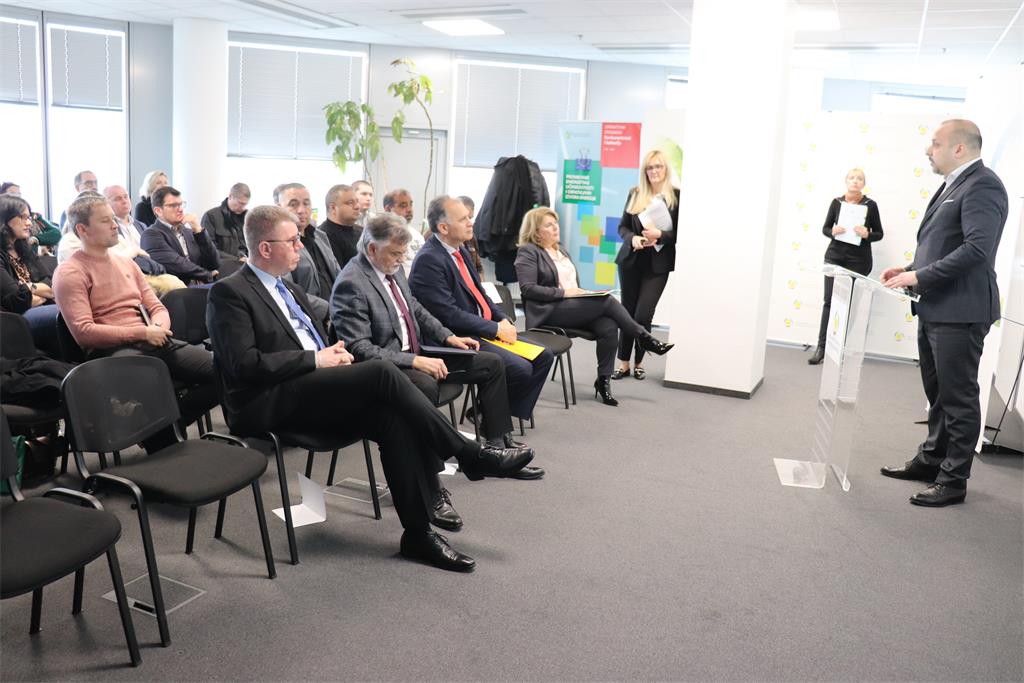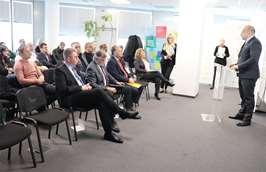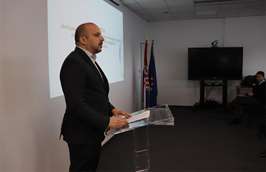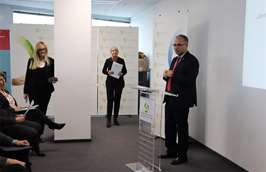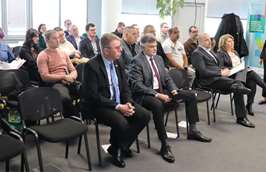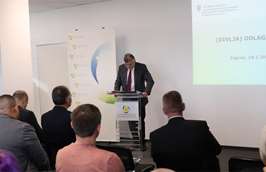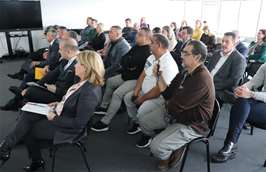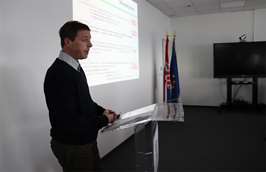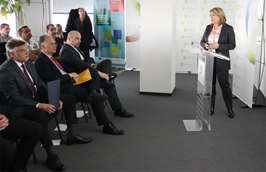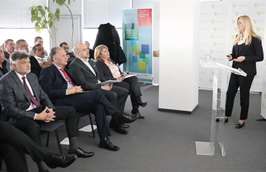18.01.2023.
The workshop on the preparation and implementation of remediation projects for “dumpsites” was held at the Fund for the representatives of the units of local self-government in areas with Roma national minority settlements.In his welcome speech, Luka Balen, the director of the Fund, pointed out that a large portion of the Fund’s programmes focused on establishing a well-organised waste management system. “Last year, at the initiative of the Government and in line with the Operational Programme for National Minorities, we created a new public call for remediation of dumpsites, for which we earmarked around 2 million euros, with 100% financing for the Roma minority settlements. We’re extremely pleased that most of you applied your projects, and that you are here at today’s workshop, which has been organised in cooperation with the Commission for monitoring the implementation of the National Inclusion Plan of Roma Minority”, said Balen, stressing that remediation projects must be followed by the projects for the prevention of new dumping sites, with education as a key component.
Member of Parliament Veljko Kajtazi agreed with him, and expressed his pleasure with the fact that the Roma national minority representatives attended the workshop. “Every time I visited Roma settlements which had dumpsites on the outskirts, it always gave a bad impression. The reason why the local communities could not deal with the problem was the fact that only 40% of co-financing was available for remediation and they were short on the remaining funds. This problem was solved in the last year’s call, for which I must thank the Ministry and the Fund since allocating 15 million kunas was no small feat. However, I think that once a location is cleared in one place, we have to make additional efforts to prevent new dumpsites from cropping up in another. I want to point out that waste dumps are created not only by the Roma people, but the rest of the majority citizens who fly-tip as well, so we have to find the solution together.”
State secretary at the Ministry of Economy and Sustainable Development Mile Horvat again emphasised the importance of the circular economy, which was the reason for having concrete waste management targets – the obligation to increase recycling up to 60% and reduce landfilling on all landfills up to 10% of the waste mass. “Even though significant recycling results were achieved in the previous years, there was too much landfilled waste in 2021, around 58% of municipal waste,” said Horvat, adding that fly-tipping was completely unacceptable because it was, first and foremost, harmful to human health.
Mario Roboz, senior advisor at the Ministry, presented the specific legal obligations of the local units in this segment, as well as the system of records of locations containing discarded waste – ELOO managed by the Institute for Environmental Protection. “The system allows the citizens or municipal officers to report dumped waste, and monitoring of the waste removal activities taken,” explained Roboz and invited the attendees to use this system.
The workshop is intended for local self-government units that were granted resources by the Fund under the Public Call for direct co-financing of removal of waste discarded in the environment (dumpsites). Another presentation for attendees was held by the head of the Environmental Protection Sector at the Fund Aleksandra Čilić, who presented the terms and conditions of last year’s public call, with some best practice examples. “In 2023, we are planning a new public call, and by mid-year we’re expecting that almost all remediation projects approved for co-financing in 2022 will have been completed. It is important that we exchange our experiences and find the optimal solution to this problem, which will contribute to not only better implementation of the government’s Operational Programme for National Minorities, but also to the protection of the environment in which we all live.
“Education is not intended for only one group of society, education is essential for everyone,” said Lidija Tošić, the head of the Public Relations Service at the Fund. “What changes in communication is the manner, the tone, and the communication channel, depending on the target group. Any topic, this one being no exception, has to strike home with the target audiences, it has to be communicated in an understandable and interesting manner, honouring the culture and the circumstances of the respective community.”


